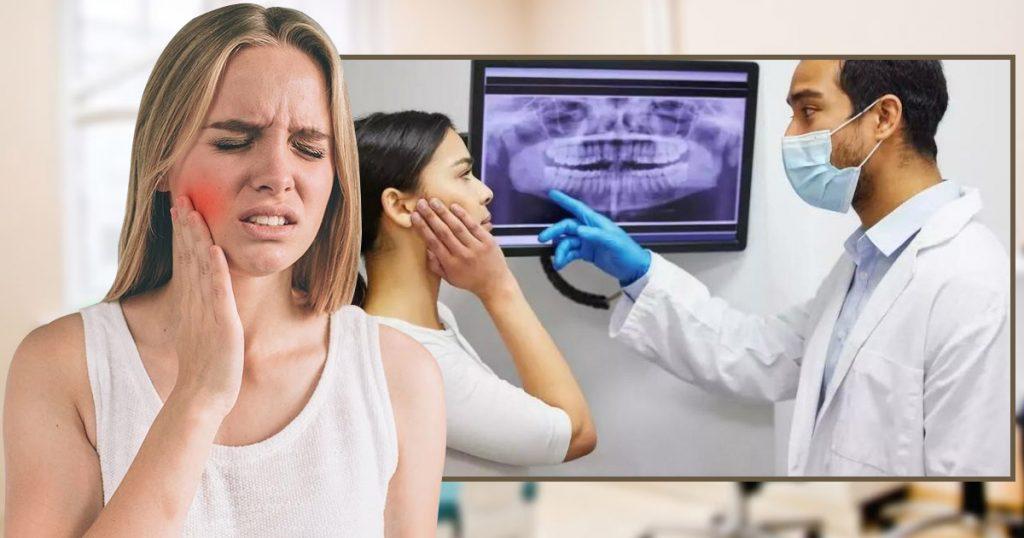During our teenage years, a common worry is the growth of wisdom teeth, especially when they become impacted. This stage can bring about considerable discomfort and lead to issues like pain, infection, and misaligned teeth. Impacted wisdom teeth are notorious for causing dental problems, making them a significant concern for many young adults. Studies show that a large number of young people face these issues, often needing help from a dentist.
Recognizing if your wisdom tooth is impacted is vital for managing pain and preventing further dental complications. Symptoms such as ongoing jaw pain, swollen gums, and difficulty in opening your mouth can indicate an impacted tooth. If you experience severe pain, it’s important to consult a dentist promptly to explore treatment options and ease the discomfort.
What is a Wisdom Tooth?
Wisdom teeth are the last molars that usually appear in the back of your mouth when you’re between 17 and 25 years old. The reason these teeth are called “wisdom” teeth is that they appear when you are supposedly older and wiser. These teeth look like regular molars with flat, broad surfaces for chewing.
Wisdom teeth grow like any other teeth, but sometimes there’s not enough room for them in your mouth. This lack of space can cause them to get “impacted,” which means they’re stuck in the jawbone or gums and can’t come out normally.
When a wisdom tooth is impacted, you might notice:
- Constant pain or soreness at the back of your mouth
- Swollen, red gums near the tooth
- Trouble opening your mouth wide
- Bad breath or a weird taste in your mouth
- Pain reaching your jaw or ear
These symptoms can be quite uncomfortable and might lead to more dental issues if ignored.
Is Wisdom Tooth Pain Normal?
Many people wonder if the pain from wisdom teeth is normal. As these teeth start to grow, it’s common to feel some discomfort, similar to when you were younger and your other teeth came in. Usually, this pain in the back of your mouth feels like a dull ache or pressure.
For most people, this pain is temporary. It typically lasts a few days to a week as the tooth breaks through the gums. However, the duration can differ for each person, depending on how the tooth grows and if there are any problems like being stuck or getting infected.
Usually, wisdom tooth pain eases off once the tooth has completely come out and settled. But if the pain lasts more than a couple of weeks or gets worse, it could mean there’s a problem, like the tooth being impacted. In such cases, visiting a dentist is important.
What to Do If Your Wisdom Tooth Is Causing Extreme Pain?
If your wisdom tooth is giving you a lot of pain, there are several things you can try to feel better about:
- Saltwater Rinse: Mix a teaspoon of salt with warm water and swish it around in your mouth a few times a day. This can help soothe the gums and keep the area clean.
- Cold Compress: For fifteen to twenty minutes, apply a cold pack or some ice that has been wrapped in a cloth to the outside of your cheek. This may help numb the area and lessen swelling.
- Pain Relievers: Take acetaminophen or ibuprofen, or other over-the-counter pain relievers, as directed by prescription. These may lessen any swelling and assist in easing the pain.
- Clove Oil: Put a little clove oil on a cotton ball and gently apply it to the sore spot. Clove oil can naturally numb the area and offer temporary relief.
- Good Oral Hygiene: Gently brush around the painful area and floss to remove any trapped food. Keeping your mouth clean can prevent further irritation.
- Watch What You Eat: Avoid hard or sticky foods that might hurt your gums or make the pain worse.
- See a Dentist: If the pain doesn’t go away or gets worse, it’s important to visit a dentist. They can check your tooth and suggest if you need any treatment, like removing the tooth.
Following these tips can help you manage the pain and protect your mouth. Always seek professional help if the pain is severe or doesn’t improve.
Wisdom Teeth: No Pain, No Problem!
You might be worried about wisdom teeth coming in, but they don’t always have to hurt. Many people go through this without any pain at all. The trick is to take a few easy preventive steps.
Keeping your mouth clean is really important. Brush and floss every day to keep your gums healthy and stop infections before they start. Regular dental checkups are also a good idea. Your dentist can monitor your wisdom teeth and identify any issues before they worsen. Take note of any changes in your mouth, such as soreness or swelling, and take prompt action.
You can ensure that your wisdom teeth do not cause you any problems by adhering to these easy guidelines. And remember, your dentist is there to help, so don’t hesitate to ask them if you have any concerns.
